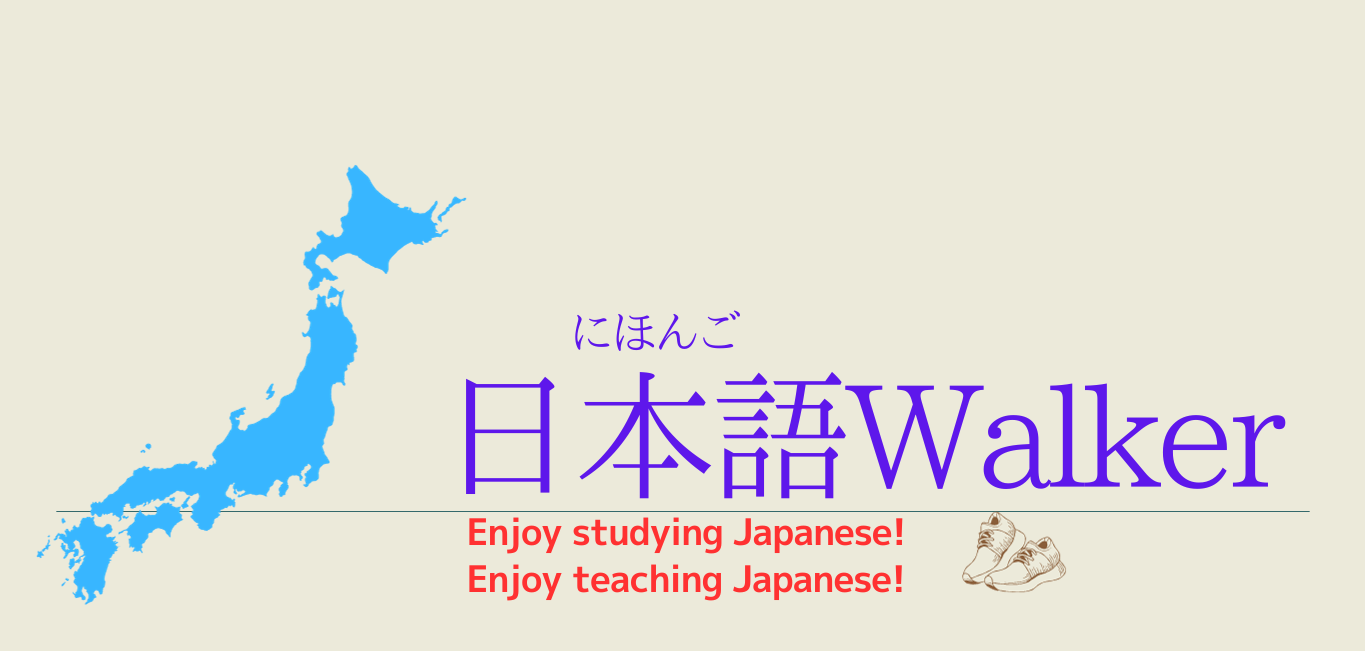日本語の先生には、うるさい先生もいれば、やさしい先生もいます。
ここでいう「うるさい先生」というのは、学習者が話す文の語彙や文法的な間違いを、一つ一つ、注意して直していく先生のことです。
「やさしい先生」というのは、学習者の話が多少不自然だったり間違いがあったりしても、意味が分かればうなずきながら聞き続ける先生です。話の形式的なことは無視し、話の内容に対する反応だけをする先生です。
あなたは,どちらが好きですか?
In Japanese language teachers, there are both strict teachers and gentle teachers.
The term ‘strict teacher’ here means a teacher who carefully points out and corrects each vocabulary and grammatical mistakes made by the learner.
The ‘gentle teacher,’ on the other hand, is a teacher who continues to listen with a nod, even if the learner’s speech is somewhat unnatural or contains mistakes, as long as he understands the meaning. This teacher ignores formal aspects of speech and only reacts to the content of the conversation.
Which teacher do you like better?
初級から中級前半の学習者 : Elementary/N5,N4,(+N3) learners
一般的に日本語の先生は、学習者に日本語を楽しく、たくさん話してもらいたいと思っています。
私もです。
もちろん文法や新出語彙を勉強する時間帯は、間違えた学生にきちっと注意します。
が、授業内外でいろいろな会話をするとき、特に初級から中級にかけてのレベルの学習者に楽しく話してもらうためには、文法や語彙の間違いをあまり細かく注意しません。
間違いを一つ一つ直されると、「話したい」という気持ちがしぼんでしまうからです。
その結果、日本語学習のモチベーションも下がってしまうからです。
ですから私は初級学習者にとっては、かなり「やさしい先生」です。
授業でも、授業以外でも、会話は楽しく進みます。
ですが・・・
Generally, Japanese teachers want to make learning Japanese enjoyable and encourage students to speak a lot.
Me too.
Of course, during study sessions for grammar and new vocabulary, I pay attention to students who make mistakes.
However, during in various conversations inside and outside of class, especially with learners at the beginner to intermediate levels, I don’t focus too much on pointing out every grammar or vocabulary mistakes. It is because I want learners to enjoy talking. Correcting every mistake can make the learners feel less motivated to speak and learn.
Therefore, I consider myself a rather “gentle teacher” for beginners. In class and in other situations, conversation goes smoothly and is a lot of fun.
However…
中級以上の学習者、特に日本で就職を目指す学習者 : Intermediate・Advanced /N3,N2,N1 learners, job seekers
中級後半以上の学習者、特に現在日本で働いている、または将来働きたいと思っている人に対しては、これではいけないと思います。
中級後半ともなると、学習者が話す日本語は、だいたい、日本人に通じます。
通じるから、細かいところで「ん?」「あれ?」「なんか変」と思っても、そこはスルーして指摘しない日本人が多いです。
が、やっぱりそれは「変」なのです。
特に日本で仕事をする上で、「変」な日本語をそのままにしておくのは、良くありません。
会社員がお客様と接するとき、その人はその会社の代表(顔)です。「変な日本語を使う社員がいる会社」として、その会社全体への信頼感を左右してしまうことも、あるかもしれません。
それ以前に会社の面接試験で恥をかいてしまう可能性もあります。
ですから、ヘンな日本語は変だ、ときちんと指摘されることも重要なことだと思います。
それは文法、表現、語彙、そして発音。すべてにおいてです。
ということで、私は、だいたい中級後半ぐらいから、どんどん指摘していくことにしています。
中級後半ぐらいから上級の学習者にとっては、私は「うるさい先生」かもしれません。
For learners, especially those at the upper intermediate level and beyond, particularly those currently working in Japan or aiming to do so in the future, I think this approach may not be sufficient.
Such learner’s spoken Japanese is generally understandable to native speakers. Because it is understandable, many Japanese people often overlook minor details that might make them think “Huh?” or “that sounds a bit strange.”
However, it’s still “strange.”
Especially in a business situation in Japan, leaving “strange” Japanese uncorrected is not ideal. When employees interact with clients, they represent the face of the company. Allowing employees to use strange Japanese might impact the overall trust in the company. It could even lead to embarrassing situations in job interviews.
Therefore, pointing out “strange” Japanese is important, covering grammar, expressions, vocabulary, and pronunciation.
So, from the intermediate level, I make it a point to progressively provide corrections. For learners at the upper intermediate to advanced levels, I might be considered a “strict teacher.“
結局どっちがいい先生?
やさしい先生、うるさい先生。
結局どっちがいい先生でしょう?
私は基本的には上記のようにレベルによって決めますが、もちろん学習者の目的や性格によっても若干変えます。
中にはただただ「楽しい授業」を求める学習者もいます。
でも・・・学習者の求めに応じてただただ楽しい授業をする先生が「いい先生」ではないですね。
もちろん、最高の教師は「必要な指摘をきちんとして日本語を直しながら、かつ、楽しい授業ができる」人だと思います。
ですから、そこを目指してこれからも鍛錬したいと思っています。
A gentle teacher, a strict teacher.
Which is the better teacher?
I generally decide based on the level as I wrote above, but of course, it also varies depending on the learner’s goals and personality.
There are learners who simply seek ‘enjoyable lessons.’
However… a teacher who simply provides ‘enjoyable lessons’ is not necessarily a ‘good teacher.’
Of course, the best teacher is someone who can give necessary feedback, correct Japanese properly, and at the same time, conduct enjoyable lessons.
So, I want to continue polishing my skills to aim for that.


コメント